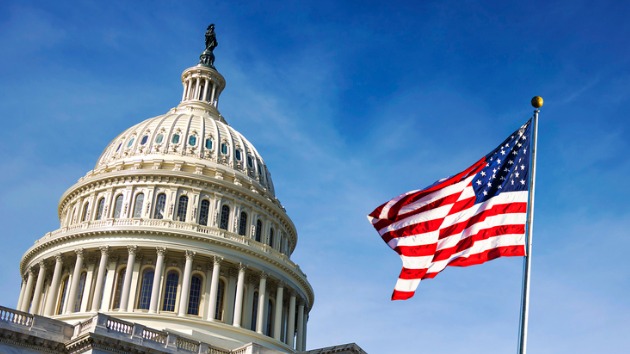
uschools/iStock
uschools/iStockBy MICHELLE STODDART, ABC News
(WASHINGTON) — The White House on Tuesday insisted that there is a “bipartisan path forward” on passing President Joe Biden’s sweeping and costly infrastructure plan, but it comes as his effort got a major boost if he gets no Republican support.
Senate Democrats are eyeing another use of the fast-track budget reconciliation process to get the measure passed after the Senate parliamentarian, a nonpartisan arbiter of the body’s arcane rules, said Monday night that Senate Democrats could use the tool for a second time to move Biden’s agenda forward as they did with his COVID-19 relief package.
Senate Majority Leader Chuck Schumer’s spokesman released a statement on Monday saying that “no decision has been made” whether Democrats would try to push the plan through without any GOP backing but that reconciliation remains an option.
“This confirms the leader’s interpretation of the Budget Act and allows Democrats additional tools to improve the lives of Americans if Republican obstruction continues,” the spokesman said.
White House press secretary Jen Psaki said at her daily briefing Tuesday that it’s up to congressional leaders to decide whether to go that route, but that in the meantime Biden is focused on engaging lawmakers to build support, noting that the White House is inviting lawmakers over next week.
“Reconciliation is a mechanism for passing budgetary bills in Congress,” Psaki said. “We will leave the mechanisms and the determination of the mechanisms to the leaders in Congress, but right now, less then a week after he announced the American Jobs Plan, our focus is on engaging with Democrats and Republicans, with staff, with committee staff, inviting members to the White House next week, and we are encouraged by some of the statements that have been made about components of the package where we could find agreement.”
Reconciliation was created by the Congressional Budget Act of 1974 and it expedites Congress’ ability to change laws relating to revenue or taxes, direct spending and debt limits.
The parliamentarian’s ruling comes after Democrats made the argument that Section 304 in the Congressional Budget Act gives Senate the ability to use reconciliation to revise the budget for the 2021 fiscal year and for future fiscal years. The parliamentarian’s ruling gives them two more uses of the powerful procedural tool.
Democrats previously used budget reconciliation to pass Biden’s American Rescue Plan in March, and believed they only had one more use of the confusing and fraught legislative maneuver. At the time, the Democrat’s use of budget reconciliation came under fire, especially from Republicans who criticized the lack of bipartisan negotiations, Senate Minority Leader Mitch McConnell said in early March that Democrats were “taking advantage” of the tool.
“So we think this package should have been negotiated on a bipartisan basis like the last five bills were done,” McConnell said. “Instead the new administration made a conscious decision to jam us, to do it one party only to take advantage of the reconciliation process to try to achieve a whole lot of other items completely unrelated to COVID-19.”
Republicans also used budget reconciliation in 2017 to pass sweeping tax cuts proposed by former President Donald Trump.
Biden’s infrastructure plan, and the hint that Democrats may once again ram the legislation through Congress, has already come under fire from GOP leaders. Last week, McConnell criticized the infrastructure package and the Democrats for going forward without Republican support.
“This whole debate underscores I think the principal difference between the two parties,” McConnell said. “This new administration and its very, very narrow majority in the House and its 50-50 Senate, nevertheless is bold and audacious. It involves principally two things: higher taxes and more debt.”
To use budget reconciliation again, Democrats would have to reach total consensus on the infrastructure plan to use their narrow majority in the 50-50 split Senate. As of now, that unity is looking difficult for Democrats to achieve as Sen. Joe Manchin, D-W.Va., has already announced that he has problems with the proposed increased corporate tax rate which would fund the ambitious bill.
“As the bill exists today, it needs to be changed,” Manchin said Monday. “This bill will not be in the same form you’ve seen it introduced or seen people talking about it.”
Manchin also hinted that he is not alone in his reservations about the bill, saying that “there are six or seven other Democrats that feel very strongly about this.”
ABC News’ Trish Turner, Allison Pecorin, Benjamin Siegel and Ben Gittleson contributed to this report.
Copyright © 2021, ABC Audio. All rights reserved.